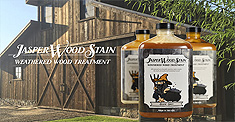Personal Protective Equipment for Working with Lumber
Woodworking, crafting, carpentry, these activities involve handling physical loads and wielding everything from hammers and saws to heavy duty power tools. So there’s some risks involved. Whether it’s splinters, dust in the eye, or worse, accidents in the workplace or woodshop can and do happen. So it pays to be prepared. And one way to ensure one’s safety while working with lumber is to have adequate personal protective equipment. So here’s the gear you must have, whether you’re doing this as a hobby or as a pro.
Personal Protective Equipment You Need
Mitigate the risks and hazards of working with lumber with the following PPEs:
Glove Up
How do you handle your tools? With your hands, of course. From splinters to pricks, nicks and scrapes, even accidentally hitting your fingers with the hammer, hands get into a lot of accidents. So protect them with gloves. These can prevent or lessen a wide range of injuries from working with lumber. Though some power tools must not be used with gloves, like table saws. Check out the instruction manuals of the tool in question to see whether you should operate them with gloves.
Safety Glasses
Your eyes are among your body’s most delicate organs. And they’re at risk of catching tiny debris that fly around while you are working with lumber. Spare yourself the anguish of washing out dust or dirt out of your eye by wearing safety glasses.
Respirator
Wood dust is a hazard. From fire risks to inhalation, it can endanger you and your workplace in many ways. Likewise with paint fumes and other chemical vapors. Protect yourself from these with a respirator. It will filter out the emissions of volatile compounds and dust particles when you’re spray painting, sawing or sanding, using paint or paint thinners, and so on.
Face Shield
Likewise, the rest of your face is also vulnerable to debris. Face shields aren’t just for dentists. These are like safety glasses but protect a wider area while you are working with lumber. This is great if you are grinding or sawing, as well as other procedures.
Steel Tip Boots
What happens if you drop something particularly heavy when you’re working with lumber? You might get a foot injury. Thankfully, heavy duty boots with steel caps can prevent these as well as punctures from stray nails and other sharp objects.
Hearing Protection
Working with loud and noisy power tools? If they exceed the human threshold of decibels (85db), then you should protect your ear drums from damage.
Fire Extinguishers
Not exactly something you wear, so it’s not a PPE per se. But any workspace should have fire extinguishers and other basic fire safety equipment.
Protect yourselves at all times while working with lumber. Stay safe, everyone!






